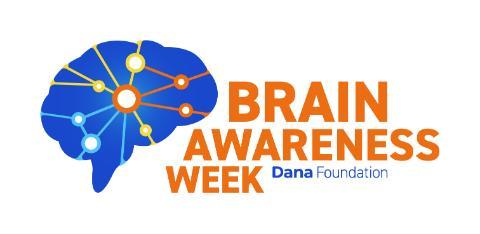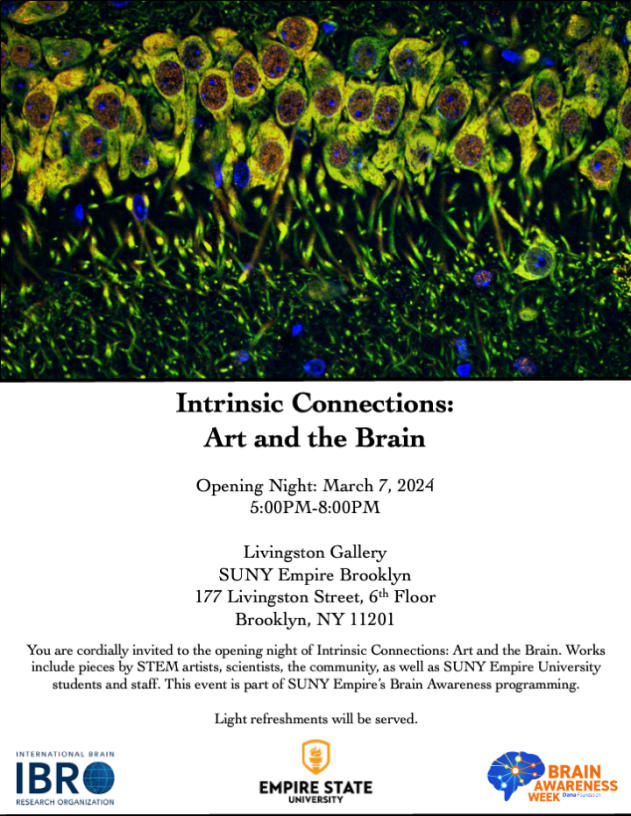March 11, 6PM EST: Schizophrenia and the Cytoskeleton
Speaker: Dr. Ryan Dosumu-Johnson, MD, PhD. The human brain is a true masterpiece, consisting of 86 billion brain cells. However, its real complexity lies in the synapses, which are the connections between these cells and are estimated to number 100 trillion. These connections encode our memories, innate responses, and reactions, as well as shape our perception and interpretation of the world. Disruptions in these connections have been proposed as the underlying mechanism for several psychiatric disorders, including schizophrenia. A relatively understudied area that plays a crucial role in the strength of these connections are motile elements of the cytoskeleton called dynamic microtubules. In this talk, we show novel findings of dynamic microtubule dysfunction in a model of schizophrenia and how psychiatric medications may act on this aspect of the dynamic cytoskeleton.
Schizophrenia and the Cytoskeleton - Microsoft Teams Link
March 12, 6PM EST: Meet the Author: Patient HM: A story of Memory, Madness, and Family Secrets
Speaker: Luke Dittrich, NY Times best-selling author of Patient HM: A story of Memory, Madness, and Family Secrets. In 1953, at age 27, Henry Molaison (known in the scientific literature as patient H.M.) underwent a radical, unproven brain surgery in an effort to cure his severe epilepsy. His epilepsy did improve somewhat, but he was left with the devastating result that he could form no new memories. Patient H.M. was the subject of many studies that changed the way that scientists understand how memories are formed in the brain. The story of Patient H.M. is told by Luke Dittrich, the grandson of Dr. William Scoville, the surgeon who performed the fateful procedure. The author will share insights into the neuroscience advances as well as the ethical and scientific issues that surrounded research on this remarkable patient.
Meet the Author -Microsoft Teams Link
March 13, 6PM EST: The Urge to Fight: Neuropeptides, Alcohol, and Excessive Aggression
Speaker: Herbert Covington, PhD. Aggression, like sex, chocolate, and other natural rewards, is a potent positive reinforcer. Animals ranging from fish-to-primates will reliably work surprisingly hard for an opportunity to fight. Likewise, social behaviors including aggression and sex are critical for the survival of mammalian species. Aberrant and unyielding social behaviors – a symptom of many psychiatric disorders – can, however, be defined as a sequence of acts an individual engages in without considering dynamic changes in their social context. Translational models of such excessive aggression, in mice, highlights neural factors that fuel a motivation to fight in the moments leading up to an anticipated confrontation. In these studies, the neuropeptide corticotrophin releasing hormone (CRH) is one such modulator of intense anticipatory arousal. The CRF peptide is deeply embedded within the autonomic nervous system; thus, we will discuss contributions of unconscious ‘hypothalamic-driven’ urges to sometimes react mistakenly, excessively, or violently. Alcohol notably disinhibits this same ‘limbic’ circuitry increasing the motivation to fight – even when fighting performance & other coordinated behaviors are compromised – pointing to specific hypotheses concerning uncontrollable alcohol heightened aggression.
The Urge to Fight - Microsoft Teams Link
(Postponed) The Nun Study: A Discussion
Moderator: Cathy Davison, PhD. Aging With Grace: What the Nun Study Teaches Us About Leading Longer, Healthier, and More Meaningful Lives by David Snowdon, Ph.D. is a story about research into the factors that predispose people to Alzheimer's dementia. This engaging, moving, and accessible account gives the reader a glimpse into the lives of individual sisters and the close bonds that Dr. Snowdon forged with many of them. It also explains the research into factors including diet, heredity, exercise, and social connections and their impact on healthy aging. In this session, the facilitator will begin by giving a brief summary of the book followed by an open-ended discussion of the many interesting and often surprising research findings.

